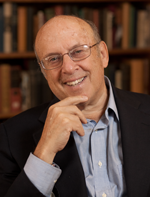
Jeffrey Carduner, Aesthetic Realism Consultant, writes:
The smartphone we’re so attached to; the books that have lasted many centuries; and our relation to a person close to us: what do all these have to do with the nature of self, with art, and with the fight going on in each of us every day? The answer is in “Reading, Talking, & the Battle in Self”—the thrilling new issue of The Right of Aesthetic Realism to Be Known.
The commentary by Ellen Reiss begins:
Dear Unknown Friends:
We continue serializing the 1972 lecture Reading Itself Has to Do with Poetry, by Eli Siegel. It is surprising, playful, deep, hopeful, definitive. Mr. Siegel is showing that reading as such—what goes on as one reads, what reading takes in—is a poetic matter, an aesthetic matter: it is described in this principle—“All beauty is a making one of opposites, and the making one of opposites is what we are going after in ourselves.”
He speaks in particular about the opposites random and plan. These are large in the life of everyone, and people have been very troubled about them. For example: a person can feel that the matters in her life lack coherence, that she just goes from one activity to another, one thought to another, without a sense of composition, and therefore without a feeling of meaning. This is a randomness that has things seem disconnected and rather empty, and it makes one feel angry and ashamed. But a person can also be pained because she is afraid of spontaneity: Oh, why do I feel I have to map out everything—why can’t I meet life more freely?
In the lecture, Mr. Siegel quotes from the book Good Reading, edited by J. Sherwood Weber (1964). It’s a work that offers both advice about reading and lists of books with brief descriptions. As Mr. Siegel mentions various titles and as he comments on statements by contributing editors, he is illustrating through them what the world itself is: a oneness of randomness and plan. And there is this great fact, central to Aesthetic Realism: as we see, consciously, clearly, opposites as one, those very opposites become better related in us. “We are,” he wrote, “the way we know” (Self and World, p. 118).
Reading, Smartphones, & Trouble
From one point of view, there is much more reading today than ever before. People are reading, in terrific abundance, text messages, email, material on social media and throughout the internet. They’re reading these things on smartphones as they walk down the street, lie in bed—and are with others at meals, cultural events, business gatherings. The terms addiction and compulsion have been used for the attachment of millions of Americans to their smartphones…. Read more